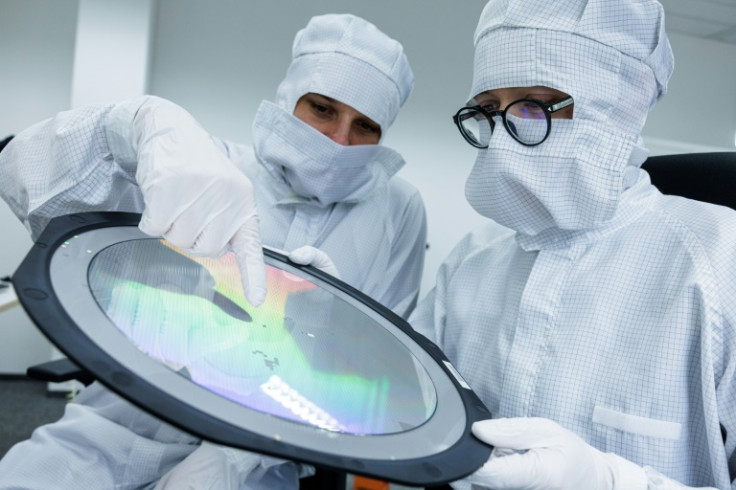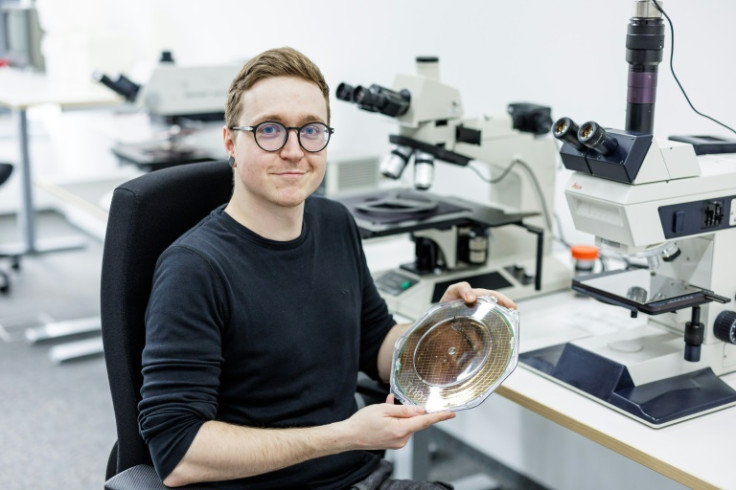
In its search for sorely needed talent, German chipmaker Infineon is looking as far as Guatemala, but the rise of the far-right at home risks making the move unappealing and harming the industry.
The semiconductor group has plans for a new five-billion-euro ($5.4-billion) factory in eastern Germany -- and it is not the only one.
Backed by huge government subsidies, US chipmaker Intel is planning a plant in the city of Magdeburg, while the Taiwanese giant TSMC will put down roots in Dresden.
For all the region's advantages -- a good position in the heart of Europe and an established industrial base -- its politics could yet be a drag.
In Saxony, which already hosts the biggest concentration of chipmakers in Europe, the far-right Alternative for Germany (AfD) party is polling over 30 percent ahead of European and regional elections later this year.
Success for the AfD risks "holding back our growth potential", Frank Boesenberg, the head of regional industry lobby group "Silicon Saxony", told AFP.
According to the group's estimates, chipmakers in Saxony will have 25,000 jobs to fill by 2030, while the local working-age population will shrink by 300,000.
"There are too few young people in the region," said Boesenberg. "We need immigration."
However, the anti-immigration politics of the AfD could put off potential recruits and damage the industry.
"A policy of isolation is a threat to prosperity," Infineon's CEO Jochen Hanebeck warned on professional social network LinkedIn.
As it stands, the large majority of the industrial capacity to produce semiconductors -- used in everything from electric cars to smartphones -- is in Asia.
But recent supply disruptions and rising geopolitical tensions in the region have prompted a rethink in the United States and Europe about depending on imported chips.
The result has been a concerted effort to relocate supply closer to home, leading to a flood of investments into areas like Saxony.
About 68 percent of German managers fear the country could become less attractive to foreign workers if the far-right gains in strength, according to a poll by the IW Koeln think tank.
January's revelations by investigative outfit Correctiv that AfD members discussed a mass deportation plan at a meeting of extremists sparked a wave of protest in Germany.
But companies had been warning well before the controversy that the AfD poses a risk to business.
Stefan Traeger, the head of Jenoptik, a producer of optical components for chipmakers, told German weekly Spiegel in December that if the industry was no longer able to find "the right people", the impact could be felt on the bottom line.
A lack of suitable workers was "the biggest challenge" facing Germany's industry, according to Economy Minister Robert Habeck.
The country will need a total of five million extra workers by 2030 to cover the shortfall in all sectors, according to IW Koeln.
At Infineon's new factory in Dresden, which should begin production in 2026, the group expects to hire 1,000 new workers.
Foreign workers will be an important "building block" on the way to achieving that target, Tom Geyer, Infineon's local head of human resources, told AFP.
The group's workforce in Dresden, who oversee highly automated industrial processes, already has representatives from a few dozen nationalities.
To find the potential new hires and bring them to Germany, Infineon has signed deals with training institutions in Guatemala and is organising language courses and help with housing for new arrivals.
But despite the far-reaching recruitment campaign, "it's a challenge in a competitive market to find trainees", said Geyer.








